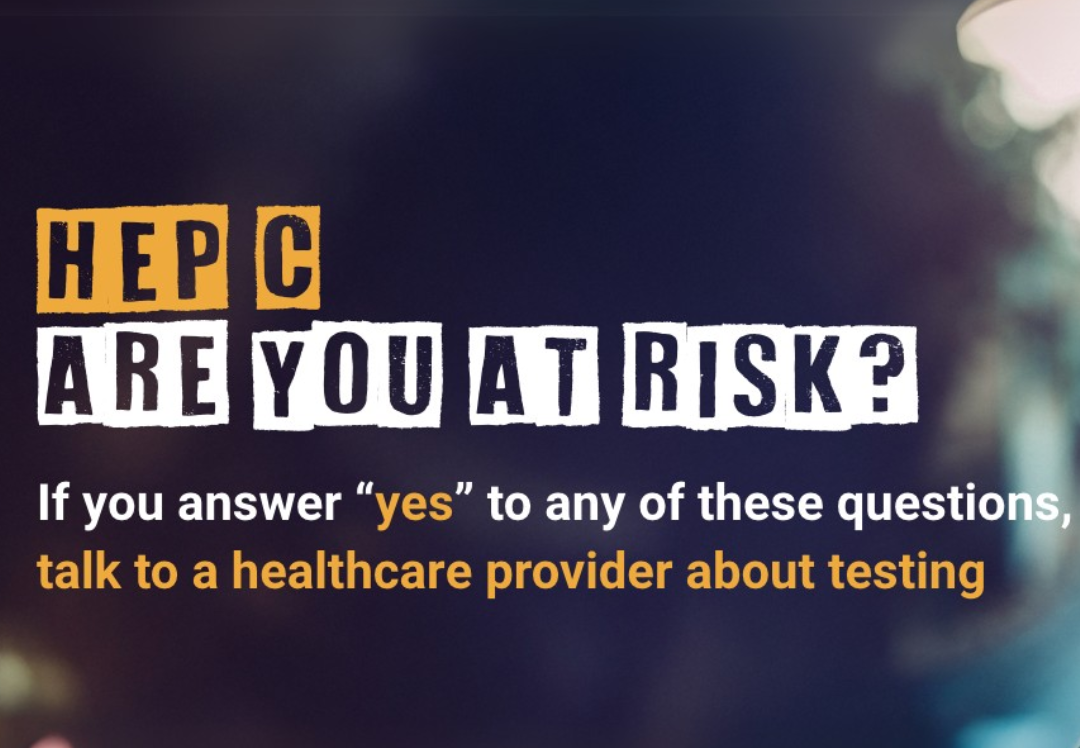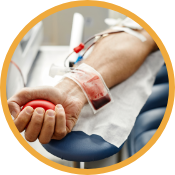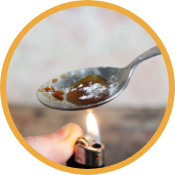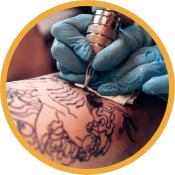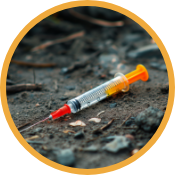GET TESTED AND LEARN ABOUT POSSIBLE TREATMENT OPTIONS.
Answered "yes" at least once or aren't sure?
Visit a clinic and ask about testing today!
THERE IS HOPE. HEP C CAN BE CONFIRMED WITH A SIMPLE BLOOD TEST.
GET TESTED AND LEARN ABOUT POSSIBLE TREATMENT OPTIONS.
Answered "yes" at least once or aren't sure?
Visit a clinic and ask about testing today!
THERE IS HOPE. HEP C CAN BE CONFIRMED WITH A SIMPLE BLOOD TEST.
